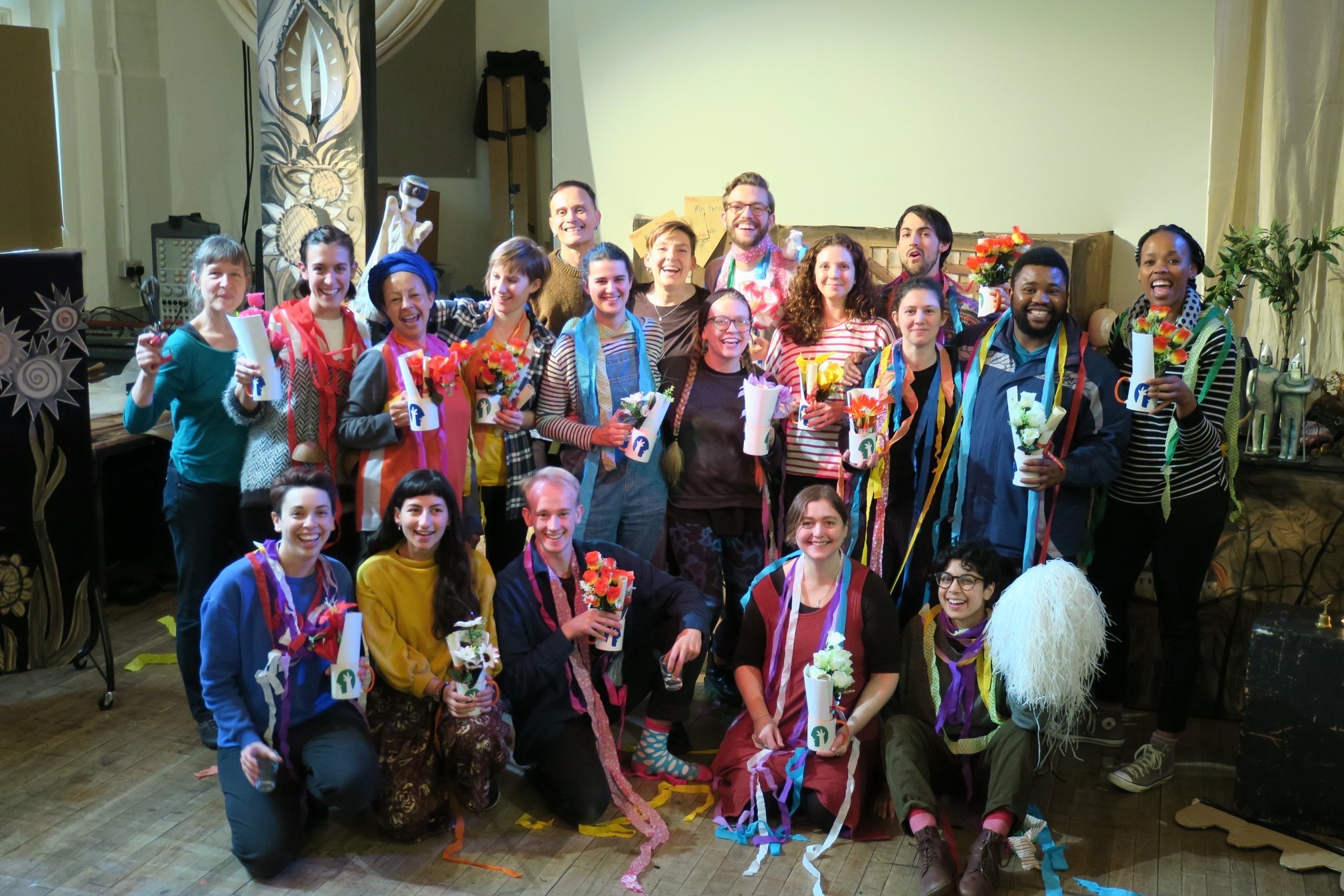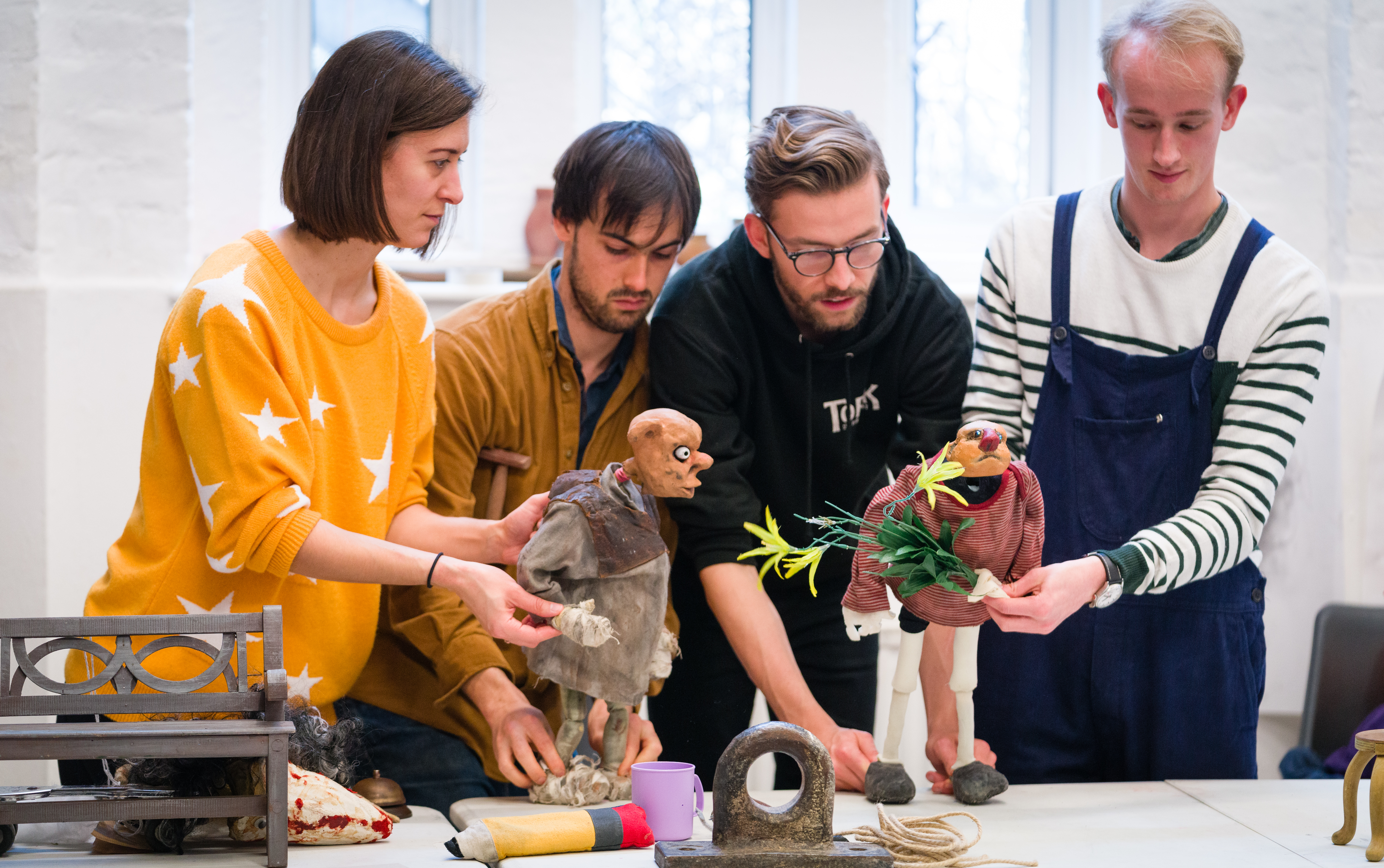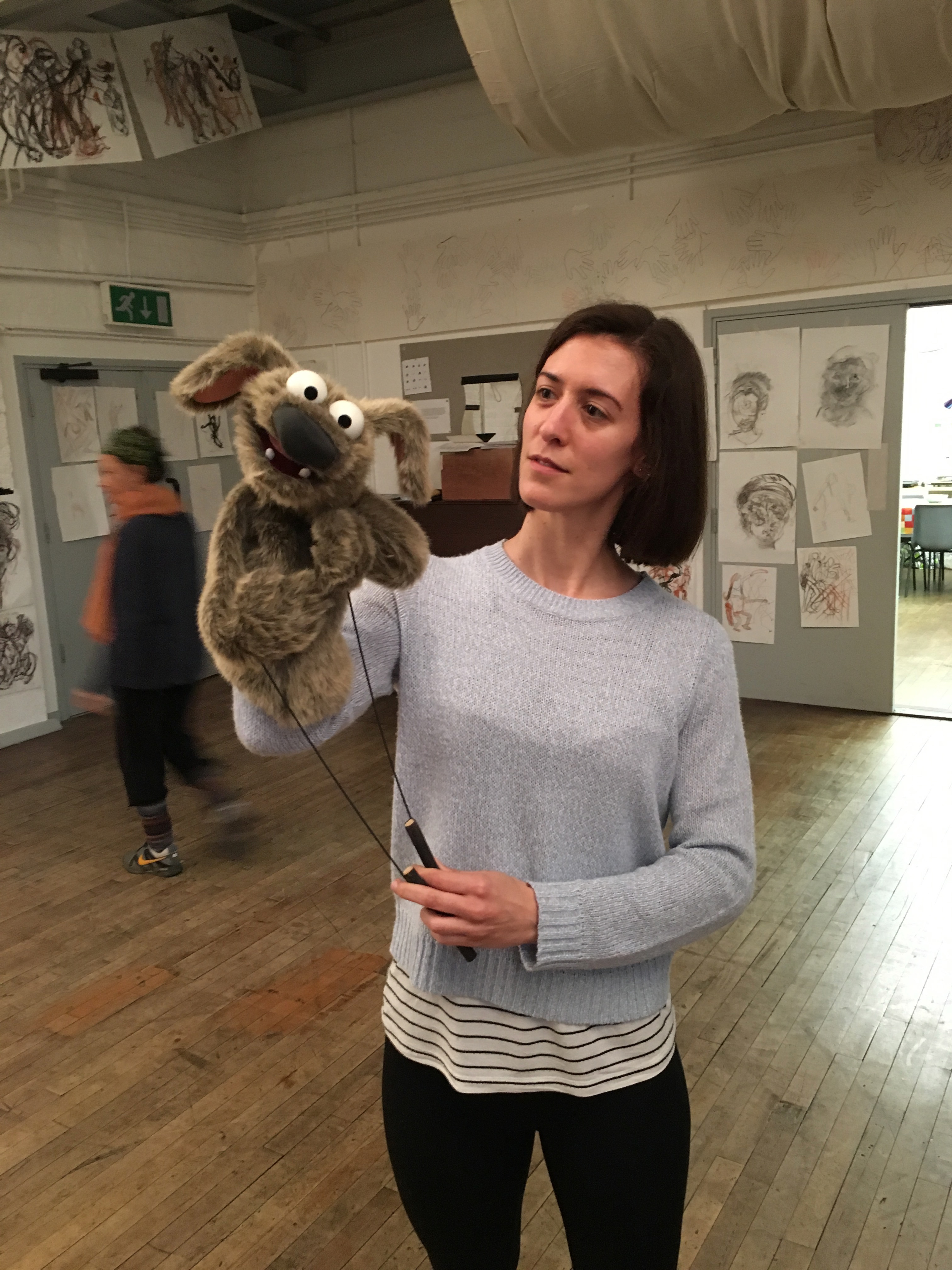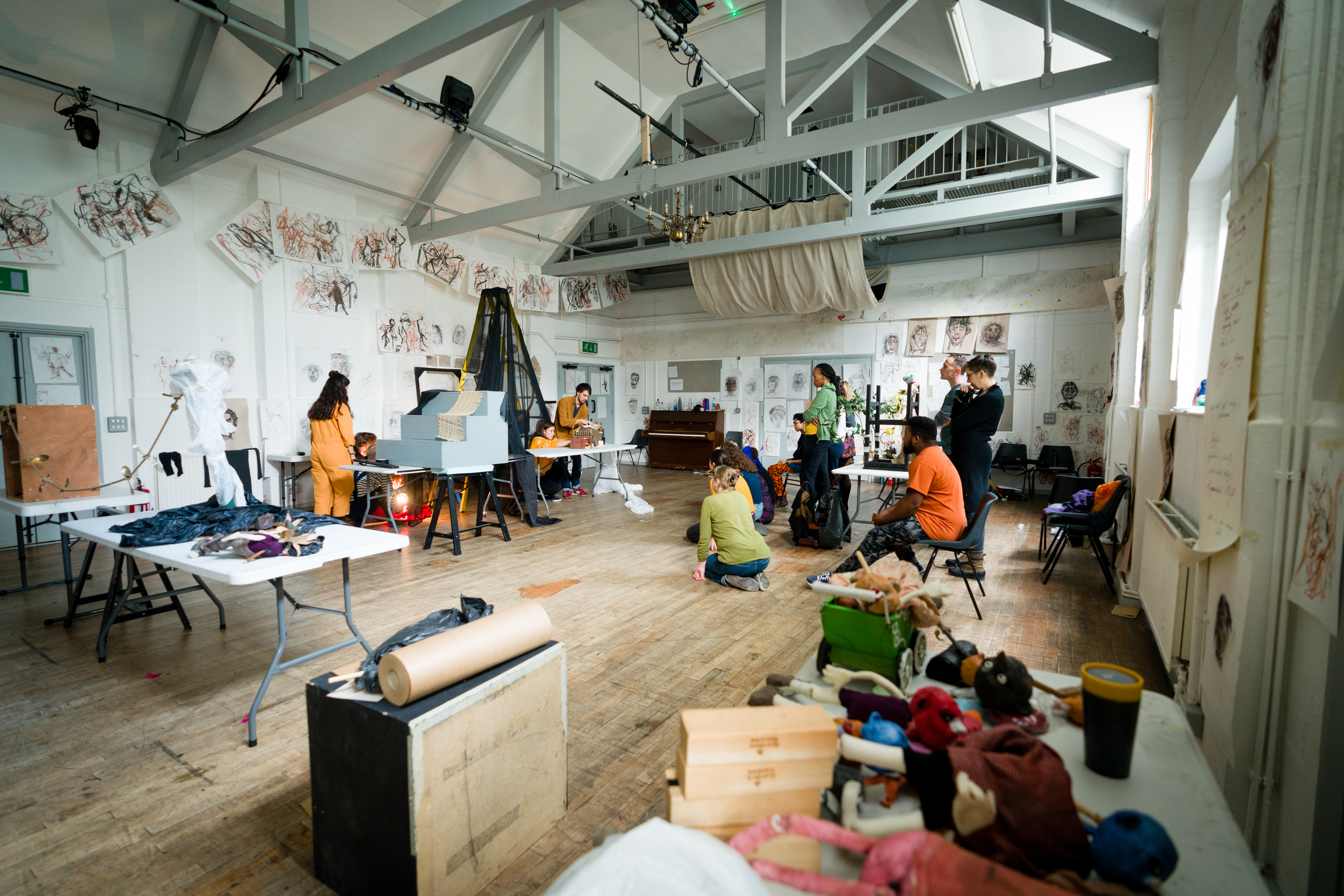Back in Cornwall, I breathe in the fresh sea air. I recently returned from nine weeks in London, six of which were spent at the Curious School of Puppetry, honing my craft, developing further skills, and working and playing with a delightful group of people.

The Curious School of Puppetry is a unique training opportunity for puppeteers at all stages of their career. Our group ranged from those who had worked on War Horse to designers who now wanted to develop as performers. Normally a ten-week course, this year it ran for six, but during those weeks I learnt so much and we grew into a company, led by the wonderful puppeteer Sarah Wright.
We learnt from masters of their craft, including Rene Baker, Ronnie Le Drew, Mervyn Millar, Lyndie Wright, Toby Olié, Anna Murphy, Stan Middleton, Liz Walker, Steve Tiplady, Iestyn Evans, Nandi Bhebhe, Dom Coyote, Marty Langthorne… the list goes on! To be taught by such experienced artists whose work I admire was a great privilege, and I had to give myself a good pinch from time to time to reassure myself it was all real.

We explored an impressive range of topics and different kinds of puppetry on the course. Working on impulse with sticks in Rene’s classes was at times extremely frustrating but will probably prove to be the most useful exercise I have ever learnt to improve my technique.
Marionette classes with Ronnie and Stan were a highlight for me as I got to explore a kind of puppetry so different to the bunraku-style work I’m used to. The initial frustration at the comparative lack of control afforded by a stringed puppet gave way to an immense feeling of accomplishment when I achieved even the simplest of movements. It was so rewarding to see how we all progressed even in just two days with the marionettes. Another highlight was working with moving mouth puppets with Iestyn Evans and Andy Heath – challenging but so much fun.

The course was a brilliant mix of solidifying the foundations of my practice while also giving me the opportunity to explore something new. For one of my final projects I chose to work with shadow puppetry. A few days spent playing with different kinds of light and shadow early on in the Curious course ignited my imagination at the creative possibilities of this wonderful art form. My group created a beautiful little piece and I loved how this form of puppetry involved us all working together behind the screen (and at one point in front), each person’s input coming together to create the whole piece.

There are many experiences and treasured moments that I will take away from this course, from our marionette disco to a room full of moving mouth puppets rocking out to Bohemian Rhapsody, to the magical moment in a voice class when our voices all suddenly harmonised and rose to the rafters as one. But the most important thing I will carry with me is the feeling of community. With the School Sarah has created a very special community of artists with a shared experience who support one another and share our passion for puppetry in its many forms.
I miss everyone and look forward to the adventures being a part of this family will bring…



















